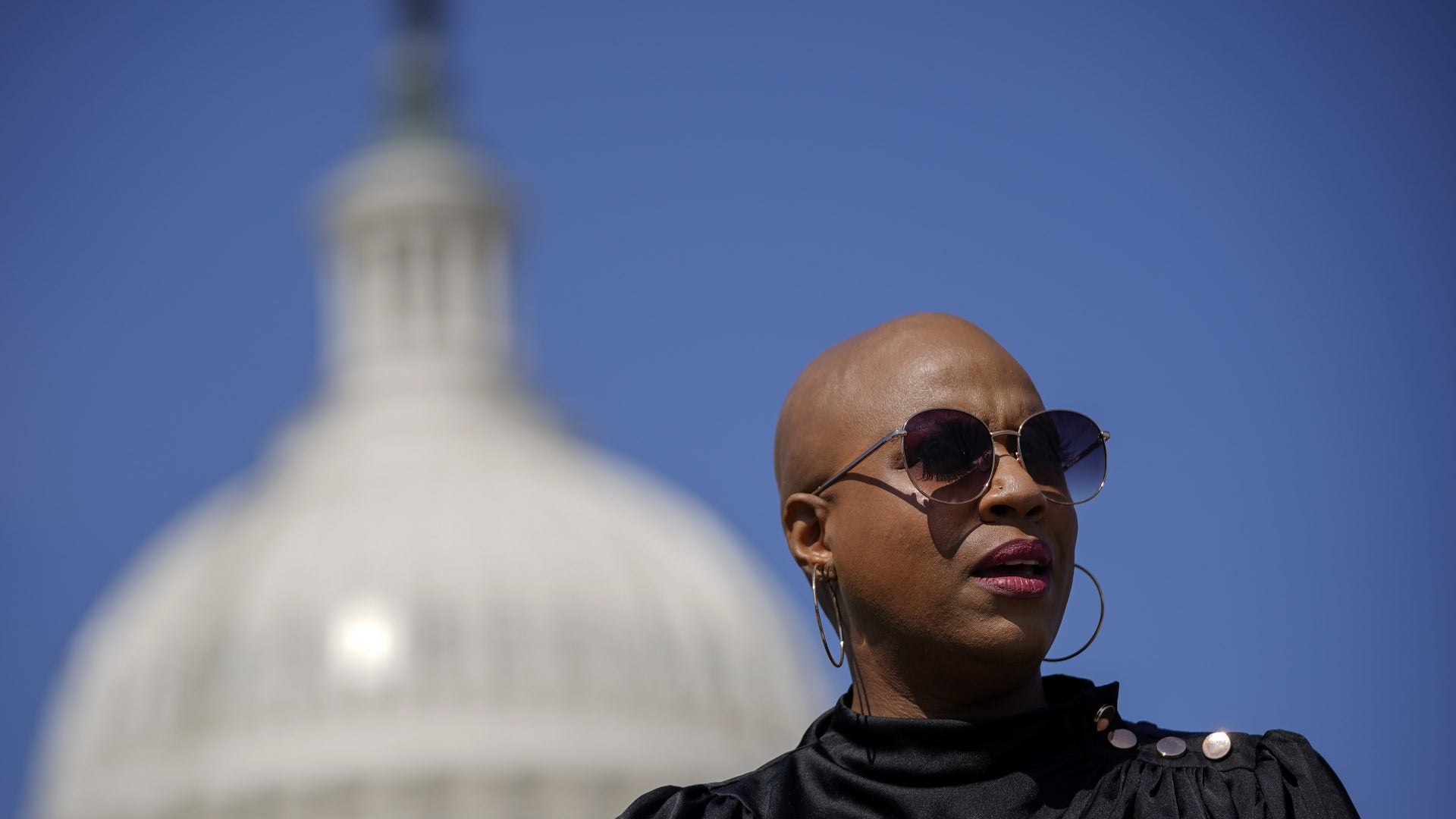
Congresswoman Ayanna Pressley (D-MA) has joined forces with Rep. Carolyn Maloney (D-NY) on legislation that takes a holistic, community-based approach to addressing childhood trauma. One bill is the STRONG Support for Children Act. The other is the Children’s Protection Act.
Both measures were re-introduced on June 10 in the House of Representatives. The bills aim to provide critical resources to address childhood trauma and create pathways for children, families and communities to heal and thrive. ESSENCE was invited to a virtual press conference where the bills were announced.
“Children are shouldering an unprecedented emotional burden after a year of uncertainty, loss, grief and fear,” said Pressley. “Anxiety, depression and other mental and emotional health challenges have been exacerbated, not only by the pandemic and its economic consequences, but by the persistent threat of white supremacist violence, police brutality and systemic racism.”
Maloney, Chair of the House Committee on Oversight and Reform, added in a statement:
“After a year defined by a deadly pandemic, a violent insurrection, and a surge in violent white supremacy, these bills are critical to breaking the cycle of trauma that contributes to America’s mental health crisis and exacerbates inequality,” she said.
In March, the Children’s Defense Fund released its annual State of America’s Children report. The 86-page document offers a comprehensive overview of the well-being of children in the U.S. It aims to inform discussions around policy and legislative prescriptions to support the advancement of children nationwide.
The report’s findings reveal that Black and Brown children have been disproportionately impacted by the COVID-19 pandemic, driving more youth and their families deeper into poverty. Moreover, nearly 1 in 7 children—more than 10.5 million—were impoverished in 2019, per the report. Nearly 71 percent of them were children of color.
“When it comes to the harm caused by the COVID-19 pandemic, children are not immune. Children are being impacted at every level- physically, economically, academically, socially, and psychologically,” said Rev. Dr. Starsky Wilson, President/CEO of the Children’s Defense Fund, in a statement. “All 73 million of our children have been impacted by the sense of uncertainty and disruption of routine COVID-19 has caused, with our Black youth especially vulnerable to 2020’s converging crises.”
Pressley assembled a group of grassroots Boston activists and national advocates to speak about the legislation. They included Dr. Wendy Ellis, Director of Community Resilience at George Washington University; Stephanie Brown, CEO of Casa Myrna Vázquez which offers resources around domestic violence; Ruth Rollins, Co-Founder, We Are Better Together which works to prevent gun violence; housing advocate Mayra Negrón-Roche, COO of Inquilinos Boricuas en Acción; and Keyon Sprinkle, a community activist working to uplift incarcerated populations. In 2020, he was exonerated for a murder he did not commit after spending two decades behind bars. He believes the legislation “will save a lot of lives.”
The Congresswoman, who has spoken publicly of surviving her own traumatic life events, has a track record of pushing for trauma-informed policy. In July 2019, Pressley worked with the late Rep. Elijah Cummings to convene the first-ever Congressional hearings on childhood trauma. In 2020, she introduced H.R. 5325, the Ending PUSHOUT Act; it would end the criminalization of Black, brown, and Indigenous girls in school. This year, the Congresswoman introduced H.R. 7848, the Counseling Not Criminalization in Schools Act, to reduce the growing presence of school-based police officers and invest in school nurses, social workers, mental health practitioners and other professionals trained in trauma-aware practices. She recently sent a letter to President Joe Biden laying out a series of steps the Biden-Harris Administration can take to address trauma.
The American Rescue Plan Act of 2021, which Biden signed into law in March, includes provisions specifically geared towards the nation’s children and families. The $1.9 trillion stimulus package aims to cut child poverty in half. Key supports such as housing and nutrition assistance have been extended, along with investments in child care and education to help children return to in-person learning. And a major expansion of the Child Tax Credit enabled millions of households to receive stimulus payments that provided between $3,000 to $3,600 per child.
The lawmakers believe the bills center the health and wellbeing of children at each level of government – from local communities to the regulatory actions of our federal agencies. The goal is to help heal children in crisis now while preventing harmful intergenerational pain.
“Our children are not independent contractors,” Pressley said. “They belong to families that belong to whole communities.”